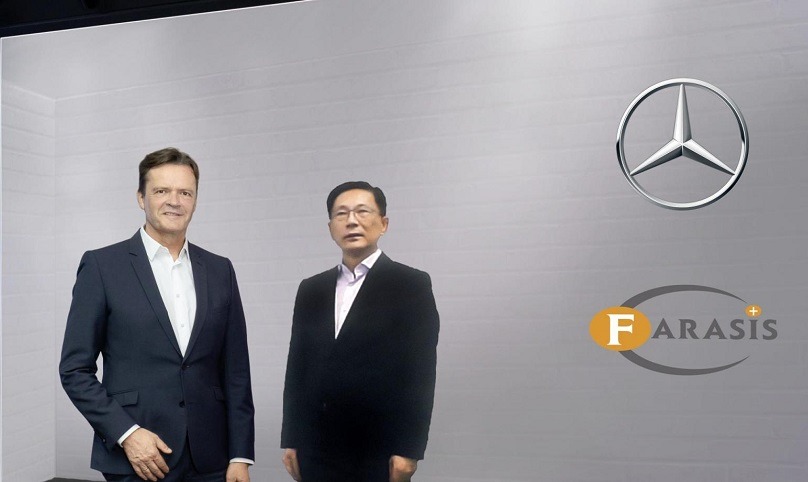06 July 2020
Daimler’s Mercedes-Benz brand is powering forward with its ‘electric first’ strategy. In less than 20 years, the carmaker plans for its new-car fleet to be CO2-neutral, with more than 50% of passenger-car sales coming from plug-in hybrids (PHEVs) or battery-electric vehicles (BEVs) by 2030.
This electric transformation means investing in strategic partnerships and restructuring its cost base to become more efficient. The company wants to ensure it can meet the future demand for key components, like electric-vehicle (EV) batteries. Meanwhile, it is examining how its production network can be slimmed down, by putting one of its plants up for sale.
The future of Hambach
Against this backdrop of manufacturing adjustment, Daimler intends to start talks to sell its Hambach plant in France. Opened in October 1997, the site currently employs around 1,600 people. Since 2019, it has produced the fourth generation of Smart vehicles, including the EQ Fortwo and the Cabrio version. To date, more than 2.2 million Fortwos have rolled off the assembly line in Hambach. Now the next generation of Smart vehicles will be produced by Smart Automobile in China. This company is a joint venture between Mercedes-Benz and the Zhejiang Geely Group.
Plans were also in the works for the French site to build a compact model for the EQ electric-car sub-brand, potentially the EQB. However, where this model will be produced remains up in the air. From the Rastatt plant in Germany to the carmaker’s site in Beijing, there are many potential build locations.
‘We continue to drive the transformation of our company and our products forward with all due speed,’ said Ola Källenius, chairman of the board of management of Daimler and Mercedes-Benz. ‘In light of future high investments, especially in electrification and digitalisation, we are consistently implementing measures to increase efficiency. This affects all areas of the company worldwide.‘
‘In addition, the effects of the COVID-19 pandemic on the economy are creating new framework conditions in the market and in this context, we are optimising our global production network. That is why we intend to start talks on the sale of the Hambach plant,’ he concluded.
Building batteries with Farasis
On its road to electrification, Mercedes-Benz has also launched a strategic partnership with the Chinese battery-cell manufacturer Farasis Energy. The agreement will see the companies develop advanced technologies, extending driving range through to buiding energy density and the reducing charge times.
The contract will give the German carmaker a source of supply of battery cells, while Farasis gains security for its planned construction of production capacity. To meet this increasing demand from Mercedes-Benz plants in the future, the battery manufacturer is building a plant in Bitterfeld-Wolfen, creating up to 2,000 new jobs. The East German site has been designed as a CO2-neutral factory from day one.
‘With this agreement, we contribute our expertise in the field of battery cell development. At the same time, we are providing a boost for Farasis’s new plant and promoting the sustainable development of a key technology and its establishment in Germany,’ said Markus Schäfer, member of the board of management of Daimler and Mercedes-Benz.
The carmaker is also taking a 3% stake in the Chinese battery-cell supplier, strengthening its strategic partnership and deepening its sustainability activities. The multi-million-euro investment into Farasis’ IPO is conditional upon required regulatory approvals.
This investment will give Daimler the option to nominate a representative for a seat on Farasis‘ supervisory board. Schäfer would intend to take the seat after 12 months, also subject to regulatory approval of a voting process.
‘China is the world’s largest electric-car market with tremendous potential for further development. We are already working with strong and trusted partners in China, not only to enhance our local footprint but also to strengthen our competitiveness worldwide,’ said Hubertus Troska, member of the board of management of Daimler, responsible for greater China.
‘By taking a stake in a Chinese battery-cell manufacturer for the first time, we will further leverage the potential of advanced technology partners in the market, enabling us to pursue our electric strategy globally. In the future, we will continue to strengthen our activities in research and development, production and purchasing in China,’ he concluded.

 Schließen
Schließen